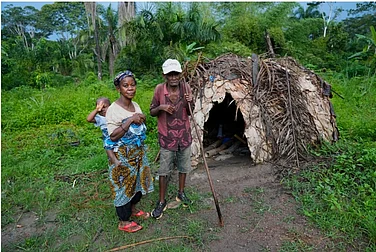The United Nations General Assembly (UNGA) has declared December 21 as World Meditation Day through a resolution introduced by Liechtenstein and co-sponsored by India, alongside Sri Lanka, Nepal, Mexico, Andorra, and other nations. This decision recognizes the importance of meditation as a tool for achieving inner peace and fostering holistic well-being.
UN Declares December 21 As World Meditation Day With India’s Support
UNGA, with India's support, designates December 21 as World Meditation Day, fostering global harmony and wellness.

India’s Permanent Representative to the UN, Ambassador Parvathaneni Harish, expressed pride in India’s role in advancing the resolution, calling it a step toward comprehensive human wellness. Highlighting India’s philosophical ethos of “Vasudhaiva Kutumbakam” (the world is one family), he emphasized that this initiative aligns with the nation’s commitment to global harmony and collective well-being.
The choice of December 21 is particularly meaningful. This date coincides with the Winter Solstice, a significant time in Indian traditions that marks the beginning of Uttarayana, an auspicious phase for inner reflection and spiritual transformation. Its placement also complements the International Day of Yoga on June 21, creating a balanced six-month interval between two globally recognized observances aimed at mental, physical, and spiritual rejuvenation.
Ambassador Harish drew parallels between this initiative and India’s leadership in declaring the International Day of Yoga in 2014. Over the past decade, yoga has evolved from an ancient Indian practice into a global movement embraced by millions worldwide. Similarly, the declaration of World Meditation Day reflects India’s ongoing efforts to promote practices that enhance overall wellness.
The resolution comes at a critical juncture as the world grapples with increasing stress, anxiety, and conflicts. The Indian mission at the UN underscored the relevance of meditation in modern times, emphasizing its roots in ancient traditions and its role in addressing contemporary challenges. Meditation fosters harmony between mind and body, individuals and communities, and humanity and nature, offering a holistic approach to achieving peace.
Scientific research reinforces the benefits of meditation, revealing its potential to reduce stress, improve cognitive functions, and enhance physical health. By recognizing these scientifically proven advantages, the UN resolution encourages people across the globe to incorporate meditation into their lives, promoting a collective journey toward inner balance and emotional resilience.
The initiative garnered widespread support from countries including Bangladesh, Bulgaria, Mauritius, Monaco, and Iceland, highlighting its universal appeal. This unanimous adoption reflects a shared commitment among nations to prioritize mental health and well-being in an increasingly fast-paced and turbulent world.
India’s instrumental role in the declaration reaffirms its global leadership in wellness initiatives. The resolution not only strengthens the importance of ancient practices like meditation but also encourages nations to work together toward creating a more harmonious and peaceful future.
(This article is a reworked version of a PTI feed.)

















